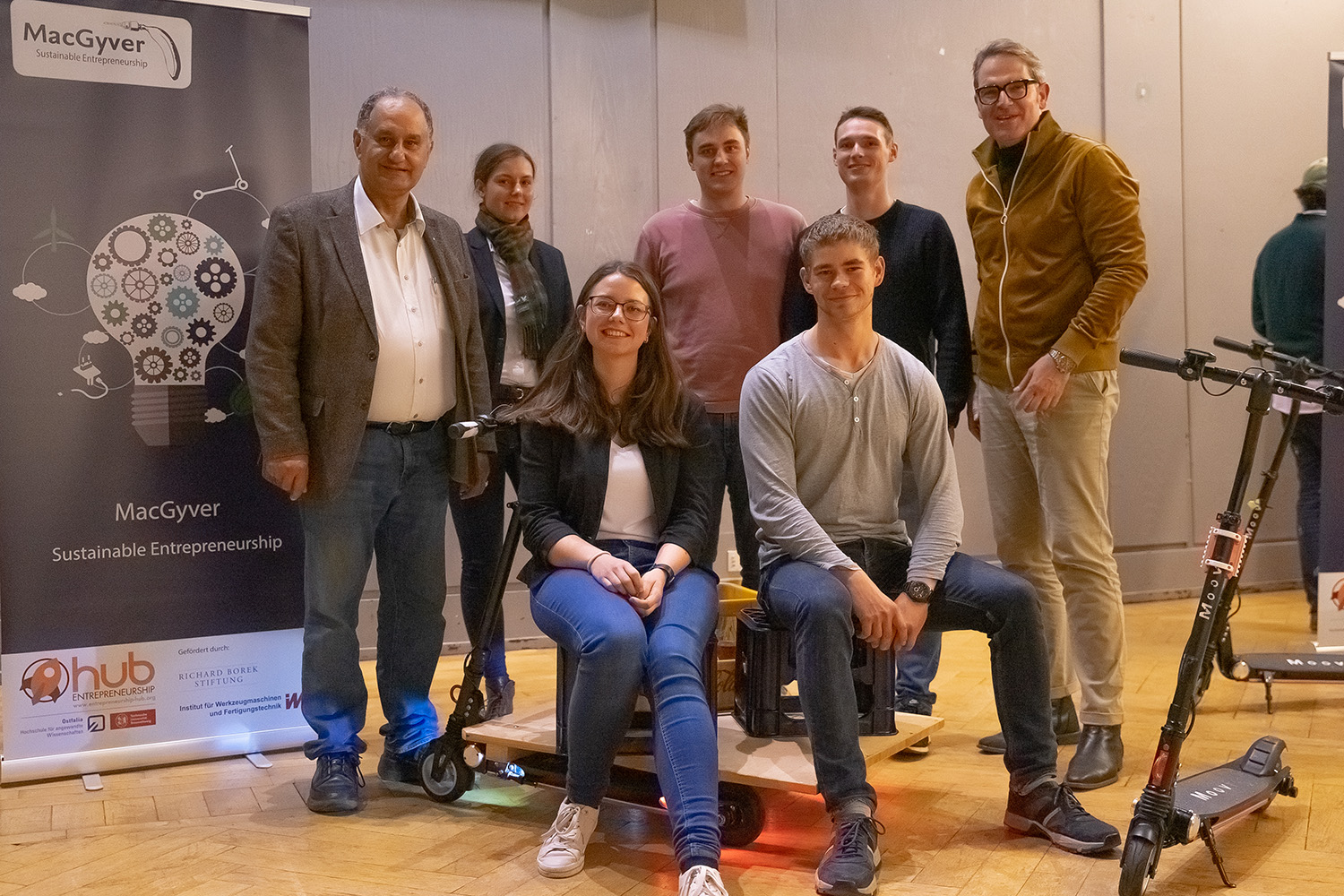MacGyver is back – tinkerers and problem solvers honoured Course "MacGyver Sustainable Entrepreneurship" honoured the most creative and sustainable approaches
The course “MacGyver Sustainable Entrepreneurship” awarded creative problem solvers and tinkerers who develop new solutions through innovative ideas and inventiveness, following the example of the legendary series hero Angus MacGyver. The new additional element is that creative ideas must also contribute to sustainability.

Prof. Dr. Reza Asghari, Head of the Entrepreneurship Hub, with the winning team “Rolleretter”.
Photo credit: Eric Haase/Entrepreneurship Hub
At the beginning of the “MacGyver Sustainable Entrepreneurship” event, the Entrepreneurship Hub organised 15 retired e-scooters by the start-up “Moovi”, which were then further developed in teamwork and optimised through innovative approaches to solutions from a sustainability perspective. Based on the diverse ideas, the teams developed real prototypes. There were almost no limits to their creativity. The teams were supported by theoretical background knowledge on the topic of entrepreneurship and business models as well as by coaching units and practical workshops of the Protohaus.
On 3 November 2022, the business ideas and prototypes were presented to a jury of experts, who awarded prizes to three teams for their commitment and proposed solutions. The jury consisted of Prof. Dr. Reza Asghari, Head of the Entrepreneurship Hub at TU Braunschweig and Ostfalia University of Applied Sciences, Dr. Michael Grisko, Managing Director of the Richard Borek Foundation and Nadja Mindt from the Institute of Machine Tools and Production Technology (IWF).
First place for upcycling idea
First place went to Philipp Heck, Katja Klaus, Benjamin Schäfer and Sebastian Schneider with their start-up idea “RolleRetteR”. They combined two retired e-scooters to create an electrified platform trolley for transporting heavy loads. The upcycling idea means that e-scooters can continue to be used and put to good use in terms of sustainability.
Second place for scooter optimisation with telematics
Second place went to the students Vito Becker, Sönke Lüdde and Vincent Rischow. They presented various ideas for scooter optimisation, including a telematics box that they want to offer in cooperation with insurance companies. Telematics boxes already exist in the automobile insurance sector. This is a technology that can be used to record, transmit and use vehicle and user data. Technical enhancements such as better lighting are also part of the team’s concept, which is intended on the one hand to improve driving behaviour and thus make traffic safer, and on the other hand to provide an even more positive driving experience.
Third place for charging concept
Third place went to the Red Box project by Laura Pleiß, Kassandra Sörgel and Lars Kasten, who developed an extension for e-scooters. With their Red Box, external devices could be charged using a USB-C charging station. In their concept, the scooter acts as a power bank. The e-scooter itself can also be charged by attached solar panels.
